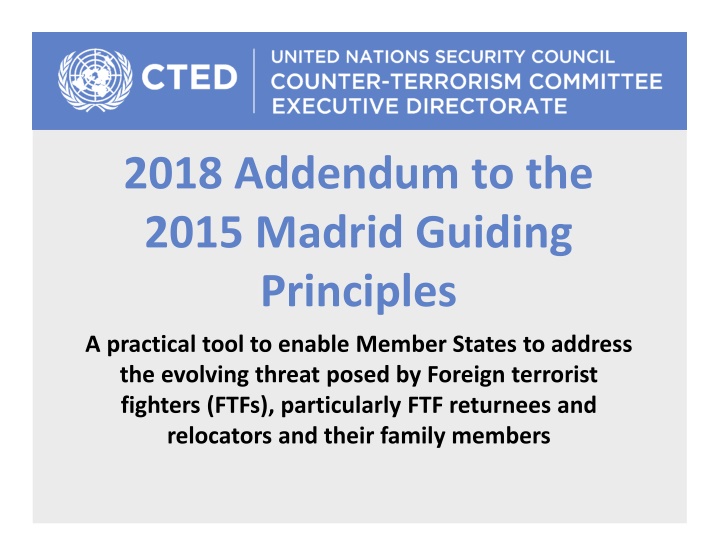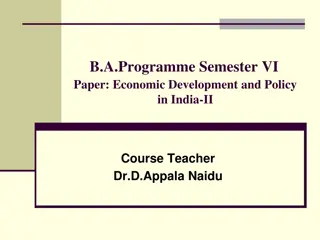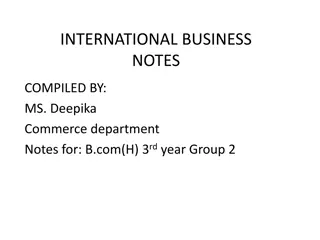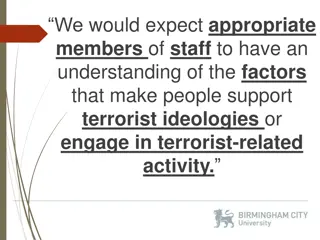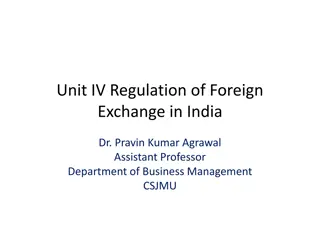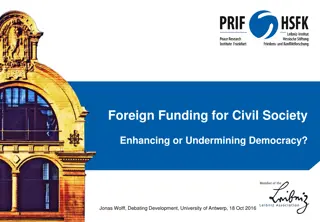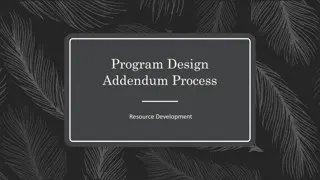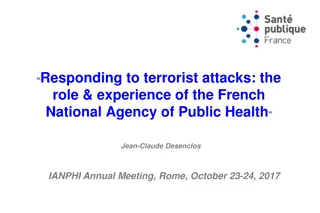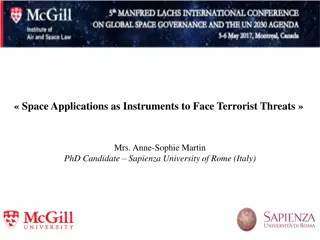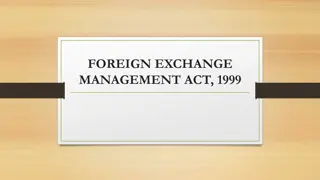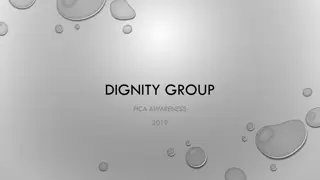Strategies for Addressing Foreign Terrorist Fighters: Addendum to Madrid Guiding Principles
Practical tools outlined in the 2018 Addendum to the 2015 Madrid Guiding Principles to address the evolving threat posed by Foreign Terrorist Fighters (FTFs), with a focus on FTF returnees and relocators, family members, and key initiatives such as CTED's mandate, API and PNR legislation, watch lists and databases management, biometric systems use, and countering terrorist narratives through peaceful alternatives.
Download Presentation

Please find below an Image/Link to download the presentation.
The content on the website is provided AS IS for your information and personal use only. It may not be sold, licensed, or shared on other websites without obtaining consent from the author.If you encounter any issues during the download, it is possible that the publisher has removed the file from their server.
You are allowed to download the files provided on this website for personal or commercial use, subject to the condition that they are used lawfully. All files are the property of their respective owners.
The content on the website is provided AS IS for your information and personal use only. It may not be sold, licensed, or shared on other websites without obtaining consent from the author.
E N D
Presentation Transcript
2018 Addendum to the 2015 Madrid Guiding Principles A practical tool to enable Member States to address the evolving threat posed by Foreign terrorist fighters (FTFs), particularly FTF returnees and relocators and their family members
CTEDs mandate Reiterates the essential role of CTED within the United Nations to identify and assess issues, trends, and developments relating to the implementation of resolutions 1373 (2003), 1624 (2005), and 2178 (2014), and other relevant resolutions, and in cooperation with UNOCT, to support balanced implementation of the GCTS, and also to advise the CTC on practical ways for Member States to implement these resolutions, and reiterates also the importance of work with relevant partners in this area, including through the GRN; Per S/Res/2395 (2017), para. 14
API and PNR Amending or introducing national legislation Collection and use in accordance with ICAO standards and recommended practices Provide adequate resources and support capacity- building efforts for implementation Passenger Information Units and lawful information sharing Oversight and data protection measures Per S/Res/2396 (2017), para. 11 and 12
Watch lists and databases Data management Development of inclusion criteria and regulatory framework Operational environment security Authorized input and access The rights of children Use of INTERPOL s databases and information sharing Effective oversight Per S/Res/2396 (2017), para. 13
Biometric systems Meaning of responsible and proper use Compliance in collection, use and sharing with international law Interoperability of systems and databases Procedural safeguards and oversight The rights of children and other vulnerable populations Fully-informed, lawful response to biometric matches Per S/Res/2396 (2017), para. 15
Countering terrorist narratives Promoting peaceful alternatives to FTF narratives Address underlying drivers Engage with all relevant stakeholders Tailor narratives to context and specific concerns Partnerships with private sector and civil society Per S/Res/2396 (2017), para. 33, and S/Res/2354 (2017), para. 2
Risk assessment and intervention programmes Anti-discrimination measures and incorporation of gender perspective Respect professional obligations of relevant actors in intervention programmes Ensure expertise of professionals involved in risk assessments Oversight and accountability in risk assessments Sharing of experiences and expertise among States and organizations Per S/Res/2396 (2017), para. 38
Investigations and prosecutions Safeguards and legal protections in cases involving children Collection, handling, preservation and sharing of information and evidence from conflict zones Handling and use of criminal intelligence Special investigation and prosecution approaches Handling and use of digital data as evidence Cooperation with the private sector Integration, use and exchange of financial intelligence Addressing linkages with transnational organized crime Per S/Res/2396 (2017), para. 5, 18 and 20
Prosecution, rehabilitation and reintegration strategies Timely, appropriate, comprehensive and tailored strategies Whole-of-government approach with civil society organizations Monitor, evaluate and review effectiveness Appropriate measures in cases involving children Effective regulation, review and oversight, including adequate protection of international human rights Per S/Res/2396 (2017), para. 29, 30 and 39, and per S/Res/2427 (2018), para. 26
Radicalization and recruitment in prisons Regular risk and needs assessment procedures Conditions of detention respect rights of prisoners Good quality and well-trained staff Targeted programmes to address specific needs Pre- and post-release measures and programmes that engage with community resources Independent and effective oversight mechanisms Per S/Res/2396 (2017), para. 40 and 41
Critical infrastructure Assess and raise awareness of terrorist risks Development and implementation of action plans Preparedness measures informed by risk assessment Interoperability in security and crisis management Information, expertise and experience sharing among public and private stakeholders Per S/Res/2341 (2017), para. 1 and 2
Soft targets Identify threats and conduct risk assessments Update contingency planning with relevant stakeholders Support for public-private partnerships through national frameworks and cooperation mechanisms Importance of localized partnerships Capacity development and technical assistance Per S/Res/2396 (2017), para. 27 and 28
Cross-cutting issues Gender Counter-narrative measures are gender-specific and women are encouraged to participate in their development and implementation Intervention programmes have a gender perspective Criminal justice systems are capable of dealing with crimes related to gender Prosecution, rehabilitation and reintegration strategies take gender into account and women are encouraged to participate in their design and implementation Gender-sensitive strategies in cases involving children Gender separation and gender-appropriate programmes in prisons
Cross-cutting issues Children and Families Protect the rights of children in the context of biometric data and watch lists and databases Special investigation and prosecution approaches for cases involving children Full protection and promotion of the rights of the child in cases involving children Best interests of the child in PRR strategies Human rights of children and separation from families in detention Rehabilitation and reintegration of FTF family members Assessing ability and willingness of families to receive returnees
Cross-cutting issues Civil society Crafting and delivering effective counter-narrative measures Sharing of expertise and experience on risk assessment tools and intervention programmes Development and implementation of prosecution, rehabilitation and reintegration strategies Collaboration with prison staff and families
Cross-cutting issues Human rights Collection, use and protection of API and PNR data Effective oversight of watch list and database processes Effective oversight and lawful sharing of biometric data Right to privacy across data collection and use practices Independence of human rights defenders and respect for freedom of expression in efforts to counter terrorist narratives Non-discriminatory risk assessment and intervention practices Protect and promote the rights of the child Collection and use of evidence with respect for human rights Compliant prosecution, rehabilitation and reintegration strategies Compliant detention conditions and post-release measures
